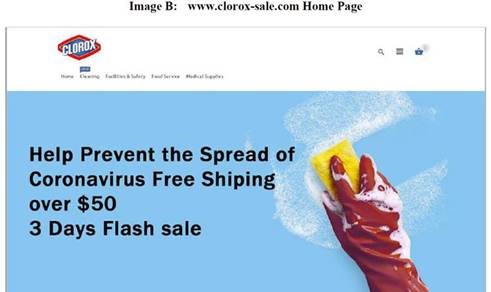Scammers follow the headlines. They take advantage of what’s happening in the news to find new ways to get people to part with their money. During the COVID pandemic, cleaning supplies have been in high demand, but often in short supply. Scammers see that as opportunity knocking.
Today, the FTC announced a complaint against defendants who are using fake websites (with real product names in the web address) and real product images and logos of well-known brands like Clorox and Lysol — all to make people think they’re buying products from the companies’ official websites.
 The FTC says that none of the sites are owned by, affiliated with, or authorized by the companies that make Clorox and Lysol, and that none of the people who paid for cleaning and disinfecting products from these sites got what they ordered.
The FTC says that none of the sites are owned by, affiliated with, or authorized by the companies that make Clorox and Lysol, and that none of the people who paid for cleaning and disinfecting products from these sites got what they ordered.
The FTC is working to shut down the sites, stop the defendants from setting up future sites, and help people protect themselves against these kinds of scams.
Before you order from an unfamiliar online store, consider these tips to help avoid a scam:
- When trying to find items that you know are in high demand and short supply – like cleaning supplies or PPE in the middle of a pandemic – you need to be extra careful when buying online, especially if the seller is offering items that are generally out of stock elsewhere.
- Look at the terms of the sale. Calculate the total price, including taxes, shipping, and handling. Find out when you can expect your delivery. If you have to return the item, can you get a refund? Who pays for return shipping? Is there a restocking fee?
- Pay by credit card. You’ll get protections under federal law, so you don’t have to pay for merchandise you ordered but didn’t get.
- If you have a problem with an online purchase, try to work it out with the seller, but remember: you have the right to reverse an unauthorized or fraudulent charge directly with your credit card issuer by filing a chargeback dispute. And if you suspect a scam, let the FTC know at ReportFraud.ftc.gov. To learn more about avoiding COVID-related scams, visit ftc.gov/coronavirus.
